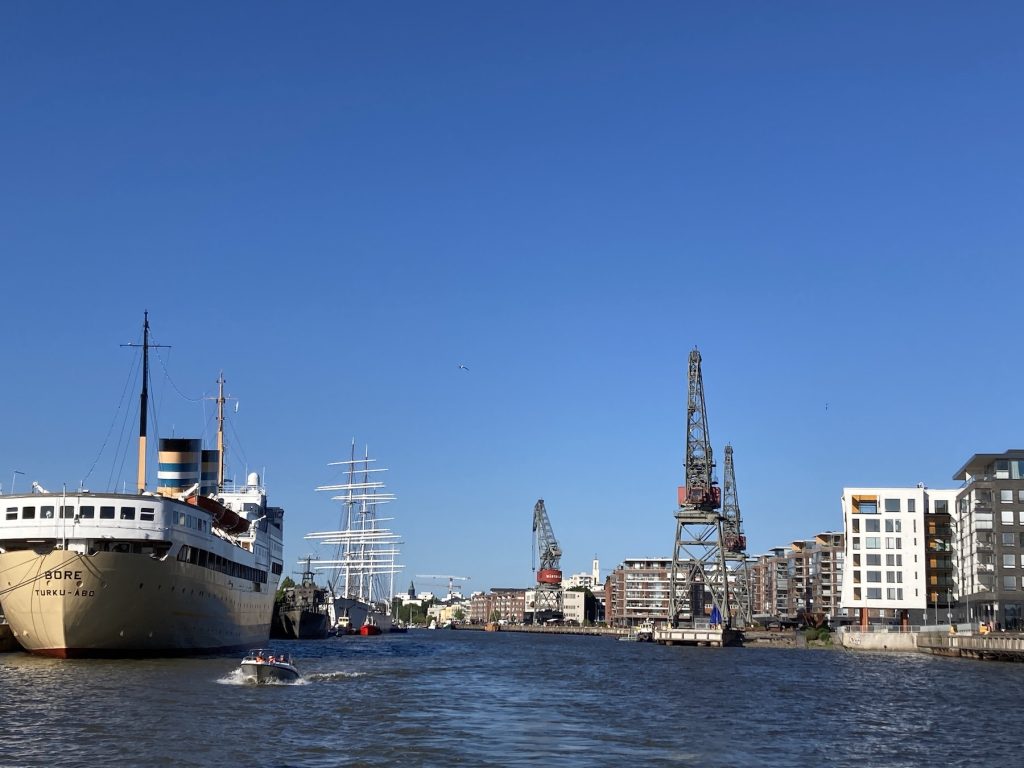In June 2024, LANDPATHS researchers contributed to the NESS and POLLEN conferences through presentation of their research and by arranging workshops and panel discussions. We summarize here how these activities have encouraged discussion on multifunctional landscape governance in the Nordics.
LANDPATHS at the Nordic Environmental Social Science Conference
The 16th Nordic Environmental Social Science Conference (NESS) was held in Åbo, Finland early in June 2024. At this years edition of the biannual conference, environmental social science scholars as well as researchers from other disciplines discussed various aspects around the central topic “Co-creation for sustainability”. LANDPATHS researchers submitted manuscripts to two out of the 28 different workshops at NESS and co-organized a total of three workshops. The manuscripts submitted are listed below and will be sent to scientific journals for publication in the coming months.
- Blicharska G et al.: Landscape multifunctionality as a pillar of biodiversity governance? Insights from Sweden.
- Westerberg C, Tafon R, Gilek M: Navigating conflict and exclusion in conservation and sustainability governance of the Nämdö archipelago, Sweden
- Öhman F, Karlsson M: Promoting multifunctional landscapes – a policy coherence analysis
- Tickle L, Hedblom, M: Doing Multifunctionality in Urban Woodlands: How Bottom-Up Initiatives are Negotiated and Resisted in Urban Governance
- Lundberg-Felten J, Kristensson D, Karlsson M: Who cares about fungal diversity? Exploring the voice of mushrooms among individual private forest owners in Sweden
Besides LANDPATHS’ own NESS workshop on multifunctional governance (see below), Tim Daw and Fanny Möckel co-organized a workshop on the impacts of deliberative mini-publics on environmental governance and attitudes, and Sara Holmgren co-led a workshop entitled “Story telling as, and for, sustainable thinking”.

Workshop on Multifunctional Governance for Biodiversity
LANDPATHS researchers Michael Gilek, Mikael Karlsson and Neil Powell organized a workshop at NESS on multifunctional governance for biodiversity. Articles were presented on envisioning nature futures for Europe and, more specifically, on transformative initiatives for biodiversity restoration in the relation to the flower bulb industry in rural areas of the Netherlands.
Other submissions to the workshop were concerned with exploring concepts in connection with multifunctional landscapes such as social learning in multi-use forestry, area neutrality in city planning, and the implementation process of protected areas in marine and coastal areas. The latter study was presented by Charles Westerberg, PhD student in subproject marine and coastal landscapes. Most of the articles presented were qualitative studies. Nevertheless, one quantitative study assessed the acceptance of conservation policies.
Frida Öhman, PhD student in LANDPATHS subproject transformative governance pathways, presented a new framework for policy coherence for multifunctional landscape governance. The LANDPATHS review paper on landscape multifunctionality, co-ordinated by LANDPATHS programme leader Malgorzata Blicharska and co-authored by numerous LANDPATHS colleagues was also presented. The participants of the workshop had fruitful discussions regarding landscape approaches, methods and institutional challenges for halting biodiversity loss.
Towards Just & Plural Futures
Just one week after the NESS conference, the Political Ecology Network Conference POLLEN 2024 took place in Lund under the theme ‘Towards Just and Plural Futures’. At the conference, LANDPATHS PhD student Fanny Möckel discussed our ongoing work in collaboration with different biosphere reserves in Sweden, in a panel consisting of transdisciplinary researchers working with biosphere reserves and political ecologists. Guided by the question “How can Biosphere Reserves be Places of Environmental Justice?”, the panel explored the potential of biosphere reserves as places that address issues of environmental justice. Participants in the panel shared both empirical and theoretical insights into their work. They addressed different ways in which biosphere reserves can be places that enable just transformations towards more sustainable futures, and what such processes could look like.
Within the LANDPATHS programme, studies are being carried out in Voxnadalen, an established biosphere, and Nämdö Skärgård, a biosphere under establishment. In autumn 2024, LANDPATHS researchers together with local biosphere reserves will organize deliberative mini-publics.
